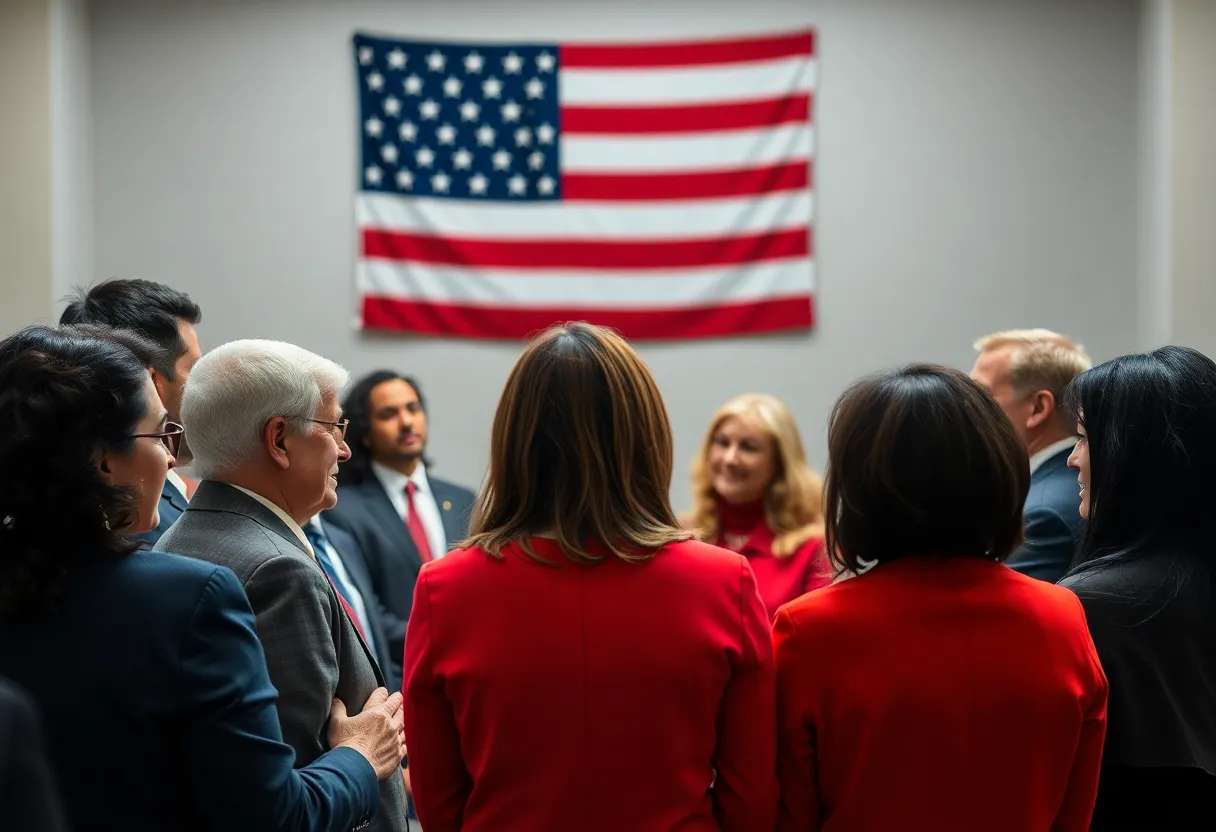Kansas City, Mo. – A Look at Amendment 7 and Ranked Choice Voting
This election season, all eyes are on Amendment 7, a proposed measure that could significantly impact how voters in Missouri make their choices at the ballot box. If passed, this amendment would put a stop to any attempts at implementing ranked choice voting within the state. As Election Day approaches, the debate surrounding this amendment heats up, with arguments coming from both sides of the issue.
Understanding Ranked Choice Voting
For those unfamiliar with the concept, ranked choice voting allows voters to express their preferences by ranking candidates in order. Imagine being able to pick your favorite candidate as number one, your second choice as number two, and so on. It offers a way for voters to feel that their voices are heard, even if their top choice doesn’t make the cut. Rachel MacNair, a supporter of ranked choice voting and secretary for an organization called Preserve Local Elections, explains, “Right now, you’re stuck voting for just one person. If local cities in the state wanted ranked choice voting, and they approve of it, voters would get to rank their first, second, third, and fourth choices for a particular race.”
In her eyes, having the ability to rank candidates means that voters wouldn’t have to feel like their votes are wasted. “If your first choice doesn’t make it, your vote moves to your second choice,” she clarified. So, it’s not just about picking one winner, but rather exploring different angles of choice.
The Opposition’s Viewpoint
On the flip side is Denny Hoskins, a state senator from Lafayette County and a firm advocate for Amendment 7. He expressed concerns that ranked choice voting could lead to confusion among voters. “Take for example, in my race in the Republican Primary for Secretary of State, we had eight candidates, and so voters would be required to rank each one of those candidates from one to eight,” Hoskins said. “It’s a very confusing, convoluted process.” He also pointed out that in states where ranked choice voting has been tried, the system hasn’t always proven effective. He believes Missouri ought to avoid what he describes as a tangled web of choices.
MacNair, however, disagrees with this assertion, stressing that voters would never be forced to rank candidates beyond their comfort level. “If anybody wants to rank only one person, they can do that. Nobody is obligated to rank more than they want,” she said.
A Closer Look at the Amendment
Aside from addressing ranked choice voting, Amendment 7 also proposes to modify the state constitution to specify that only U.S. citizens are permitted to vote in Missouri elections. Although non-citizens cannot legally cast a vote already, MacNair believes this will be a tactic to sway voters towards supporting the amendment, perhaps even if they don’t fully understand the implications regarding ranked choice voting.
Making Choices This Election
As the debate continues, Missourians are encouraged to gather all the facts and make informed decisions about how they want their voting process to look in the future. It’s not just about the current elections but how those choices might shape the political landscape for years to come.
With early voting already underway, all eyes are on whether voters will say “yes” or “no” to Amendment 7. Will they embrace the chance for more choices at the polls? Or will they opt for a familiar path? Whatever the outcome, Missouri voters will undoubtedly be engaged in a lively discussion.
As we gear up for this pivotal election, it’s essential for voters to understand these changes and participate actively in shaping their voting rights.






